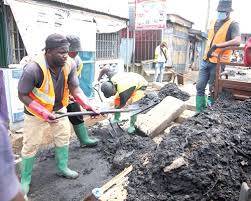Let’s Clean Our Cities Ourselves: Local Assemblies Demand IGF Control to Tackle Sanitation Challenges
A New Approach to Sanitation Management in Ghana
Sanitation continues to be one of the most pressing issues in urban Ghana. From heaps of uncollected waste to overflowing drains and unsanitary markets, the problem of filth in our cities is not only affecting our health but also the economy and tourism potential. In a bold move, local assemblies are calling on the government to give them direct control over Internally Generated Funds (IGF) to address sanitation problems in their jurisdictions.
The mantra "Let us clean our cities ourselves" is not just a catchy slogan—it’s a serious proposal for sustainable urban cleanliness. This article delves into why this call matters, what it means for everyday citizens, and how empowering assemblies could be the game-changer in Ghana’s sanitation fight.
What Is IGF and Why Is It Important?
Understanding Internally Generated Funds
Internally Generated Funds (IGF) are the revenues raised by local government authorities from sources such as property rates, business operating permits, market tolls, and sanitation levies. These funds are meant to support local development and service delivery.
However, in most cases, these funds are centrally controlled or subject to strict guidelines that limit how they can be used. Local government officials argue that this bureaucratic bottleneck limits their ability to quickly respond to sanitation emergencies or long-term waste management planning.
-Assemblies Say: Give Us Full Control Over Our Resources
Local Leaders Speak Out
Municipal and District Chief Executives (MDCEs) across Ghana are united in their plea: “Let us clean our cities ourselves.†They are pushing for full autonomy over the IGF they collect, so they can invest in better waste collection systems, hire more sanitation workers, and educate the public about hygiene.
Some district officials complain that even basic waste bins or garbage trucks are difficult to acquire because of funding delays and administrative red tape. With direct access and decision-making authority over IGF, assemblies believe they can make faster, more localized decisions.
-Why Ghana’s Cities Are Struggling With Waste
The Root Causes of Poor Sanitation
1. Overpopulation in Urban Areas
Cities like Accra, Kumasi, and Tamale are experiencing rapid urbanization, and with that comes increased pressure on waste management systems.
2. Limited Waste Infrastructure
Many areas lack designated waste collection points, recycling facilities, or even enough refuse trucks.
3. Poor Attitudes Toward Waste Disposal
Some citizens continue to dump refuse into gutters or unauthorized locations due to poor enforcement and a lack of awareness.
4. Underfunded Local Governments
Perhaps the biggest issue is that assemblies are under-resourced and over-dependent on the central government.
How IGF Control Can Improve Sanitation
Empowering Local Assemblies Is the Key
When assemblies have the freedom to use IGF as they see fit, they can:
Invest in more refuse collection trucks
Construct proper landfill and recycling sites
Launch localized public health campaigns
Create employment for sanitation workers
Partner with private waste management companies
This localized approach ensures tailored solutions rather than one-size-fits-all policies that don’t address the unique needs of each district.
-Citizens Must Be Part of the Solution
Everyone Has a Role to Play
While giving assemblies more power is important, individual responsibility is also critical. Communities must be educated and held accountable for their waste habits.
How Citizens Can Help:
Sort and dispose of waste properly
Join clean-up exercises
Report illegal dumping
Support local sanitation bylaws
When people begin to see waste management as a shared duty, the results can be transformational.
-Government’s Role: Support, Not Control
National Collaboration Is Still Essential
Even though assemblies want more control over their IGF, they’re not suggesting complete independence from the central government. Instead, they want supportive supervision rather than restrictive control.
The central government should provide technical support, create sanitation-friendly policies, and ensure accountability frameworks that promote transparency in how IGF is spent.
-Sanitation and Its Link to Public Health
Dirty Cities, Sick Communities
Ghana loses millions of cedis each year to sanitation-related illnesses like cholera, malaria, and typhoid. Clean cities mean healthier people—and healthier people mean increased productivity and reduced health costs.
Empowering assemblies to act fast on sanitation issues could significantly reduce disease outbreaks, especially in densely populated areas.
-Economic Benefits of Clean Cities
From Clean Streets to Clean Profits
Did you know that a cleaner city attracts more business and tourism? Local vendors in cleaner markets report higher sales because customers feel safer and more comfortable. Tourists are also more likely to explore cities that are hygienic and beautiful.
By cleaning up our cities, we’re not just improving health—we’re also boosting local economies.
-Challenges to Watch Out For
What Could Go Wrong?
If IGF control is given to assemblies without proper monitoring:
Funds may be misused or misallocated
There may be political interference in sanitation contracts
Some assemblies may lack the technical capacity to manage large projects
That’s why transparency, public engagement, and auditing mechanisms must be put in place alongside any policy change.
-Conclusion: A Cleaner Ghana Starts With Local Empowerment
The message is clear: “Let us clean our cities ourselves†is more than a cry for help—it’s a practical solution that recognizes the power of localized decision-making. If we give local assemblies the tools, funds, and freedom to manage sanitation directly, they can respond faster, plan smarter, and engage communities better.
This approach requires bold leadership, responsible citizen action, and a national mindset shift from blaming to building. If Ghana is serious about becoming a cleaner, healthier, and more attractive country, it’s time to let local leaders lead.
-Trending Searches Related to Sanitation in Ghana
How to improve sanitation in cities
Local government waste management solutions
Ghana assemblies and IGF control
Public health and sanitation in Ghana
Waste management jobs in Ghana
Recycling business ideas in Ghana




No comments yet
Be the first to share your thoughts!